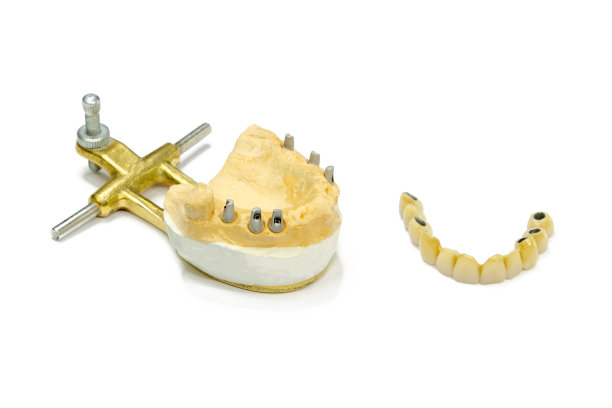Summary: Dental fillings are a common procedure aimed at restoring teeth damaged by decay. Before undergoing this treatment, patients need to consider multiple factors to ensure successful outcomes. This article discusses essential steps and considerations including understanding the need for fillings, evaluating filling materials, preparing for the procedure, and post-treatment care. These aspects are crucial for maintaining oral health and ensuring a smooth dental experience. By being well-informed, patients can navigate their options and make educated decisions concerning their dental treatments.
1. Understanding the Need for Fillings

Before deciding on dental fillings, its vital to comprehend why they are necessary. Dental fillings address the damage caused by cavities or decay. Recognizing signs such as tooth sensitivity, visible holes, or dark spots can prompt timely dental visits. Identifying these symptoms early may prevent larger issues down the road, leading to more complicated treatments.
Consulting a dentist for an examination is a crucial step. During this visit, a dentist evaluates the extent of the decay, possibly using X-rays to reveal hidden damage. Being aware of the underlying issues is essential in understanding the need for fillings and the treatment options available.
Its equally important to discuss the urgency of the procedure. If left untreated, dental decay can progress, leading to more severe complications such as infections or extraction. Thus, recognizing the signs and seeking dental care promptly is imperative to ensure optimal oral health.
2. Evaluating Different Filling Materials
When it comes to dental fillings, various materials are available, each with its benefits and downsides. Common options include amalgam, composite resin, glass ionomer, and ceramic. It is beneficial to understand these materials before making a decision, as they differ in aesthetics, durability, and cost.
Amalgam fillings are often recommended for their strength and longevity, making them suitable for back teeth. However, their silver color may not complement a natural smile. On the other hand, composite resin fillings blend seamlessly with natural teeth and are ideal for front teeth. However, they may not last as long as amalgam fillings in high-pressure areas.
Consulting with your dentist on the most appropriate material for your specific needs is essential. They can assess your situation and recommend a filling type that aligns with your preferences, lifestyle, and budget, ensuring a satisfactory outcome.
3. Preparing for the Dental Procedure
Preparation is key to a successful dental filling procedure. Prior to the appointment, it鈥檚 important to communicate any medical history and current medications to the dentist. This information can confirm whether local anesthesia is suitable and identify any potential complications.
Patients should also be aware of any dietary restrictions before undergoing dental work. Some dentists recommend avoiding certain foods or beverages on the day of the appointment to minimize discomfort and ensure a smooth procedure.
Additionally, discussing any anxiety related to dental visits can help the dentist provide suitable options for a more comfortable experience, whether thats through sedation dentistry techniques or additional support during the procedure.
4. Post-Treatment Care and Maintenance
After the dental filling procedure, it is crucial to prioritize post-treatment care for the long-term success of the filling. Initially, some discomfort or sensitivity may occur, which is normal. Following dentist instructions on pain management and avoiding problematic foods is essential to ensure a quick recovery.
Regular dental check-ups should not be overlooked after having fillings. These visits can help monitor the condition of the fillings, ensuring they remain intact and functional. Dentists can provide guidance on supplementing care routines at home, including proper brushing and flossing techniques.
Maintaining excellent oral hygiene practices is vital. Regular brushing, flossing, and using mouthwash can prevent further decay and protect the repaired area. An understanding of the best practices and commitment to oral health will help extend the lifespan of dental fillings and overall dental health.
Summary:
Understanding the necessity for dental fillings, evaluating various materials, proper preparation for the procedure, and post-treatment care are key elements to consider when undergoing dental filling procedures. Each phase comes with its requirements and recommendations, empowering patients to make informed choices about their dental health.
This article is compiled by Vickong Dental and the content is for reference only.
Vickong Dental
Vickong Dental is a large medical group established in Hong Kong in 2008 by professors from well-known medical universities in Guangdong and Hong Kong, as well as medical doctors from key national '985' universities (including Master's supervisors and senior professors). The chain of branches brings together expert dentists with PhDs and Master's degrees from Hong Kong and Mainland China, committed to providing high-quality dental treatment.
"Vickong Dental Practices the University Motto of 'Healing and Serving Society,' with a Stable Operation for Sixteen Years. It Has Been honored with Hong Kong Enterprise Leaders's Choice,' and is a Global Trusted Implant Center for the Nobel Implant System. Recommended by Hong Kong Metro Broadcast and Guangdong Television, it Serves Customers from Over Thirty Countries and Regions, Gaining the Trust and Favor of Citizens from the Guangdong-Hong Kong-Macau Greater Bay Area and Surrounding Cities.

Thousands of customers' unanimous praise
The most recognized and highly recommended dental service by customers in the Guangdong-Hong Kong-Macau Greater Bay Area
We Ensure You Receive Detailed Care and Attention Here
Hong Kong standards, Shenzhen prices, Your Trusted English-speaking dentists

Vickong Dental Medical-Grade Instrument Disinfection Process
Vickong Dental Medical-Grade Instrument Disinfection Process

Vickong Dental Chain: A Warm and Comfortable Environment for Treatment






Appointment Hours

Q&A
Why choose Vickong Dental?
Vickong Dental practices the university motto 「Medicine to Benefit Society」, with each branch bringing together highly qualified dentists with doctoral and master’s degrees from Hong Kong and the Mainland, and has maintained seventeen years of steady operation。Recipient of 「2024 Hong Kong Enterprise Leaders Brand」, 「2025 Hong Kong Enterprise Leaders Brand」, a Nobel Biocare Global Trusted Implant Center, and a brand recommended by Metro Radio Hong Kong and Guangdong TV。
To date, we have served customers from more than thirty countries and regions,earning exceptionally high word-of-mouth recognition and trusted recommendations from residents across the Guangdong-Hong Kong-Macao Greater Bay Area and surrounding cities
We have eight major branches in Zhuhai、Shenzhen,and a consultation and service assurance center in Hong Kong,so you can book a free consultation at any time for any questions,which is very reassuring.
If I do not accept the quotation after the CT scan, will I be charged??
No! As long as the actual treatment has not started, you will not be charged any fees.
Will there be any additional charges during the treatment process?
No, there won’t be any additional charges. Before treatment begins, we will clearly explain the treatment plan and its corresponding fees. Only after the patient agrees and signs the consent form will we proceed with the dental service.
Can I pay in Hong Kong dollars?
Yes. Vickong Dental accepts payment in Hong Kong dollars. The amount will be converted based on the exchange rate of the day, and the applicable rate will be clearly communicated to you in advance.
Can I reschedule my appointment at any time?
Yes. Please contact us via **WeChat** or **WhatsApp** as early as possible, providing your original appointment time and details, along with your preferred new date and time slot for rescheduling.













